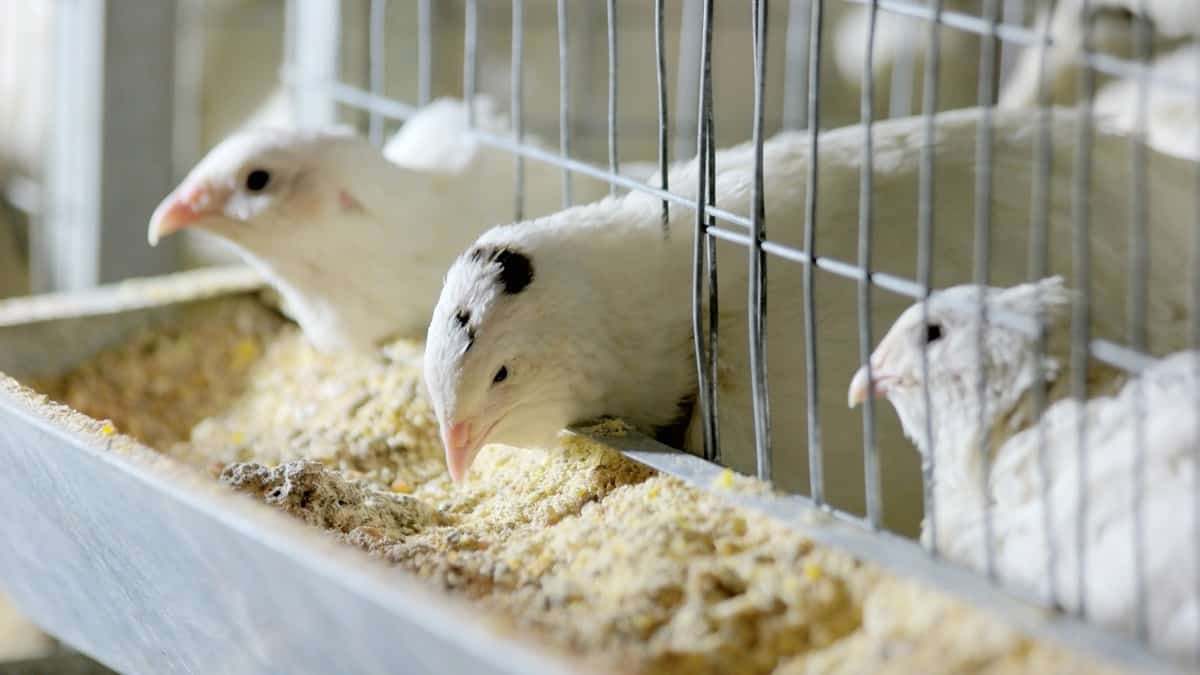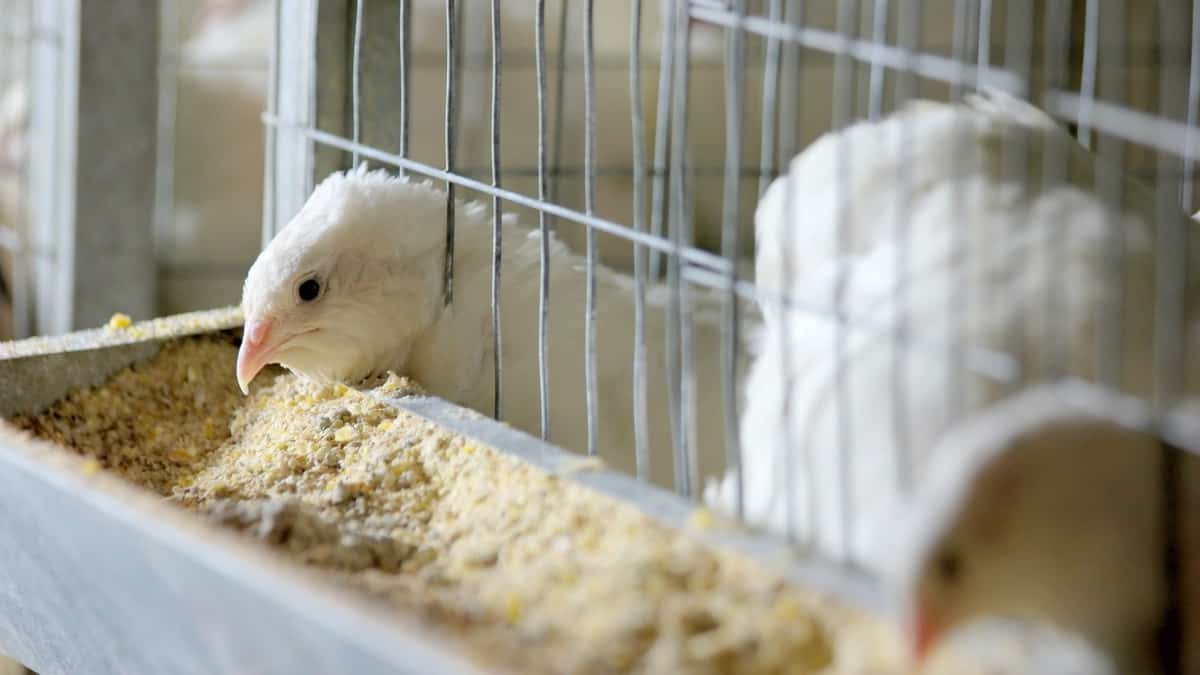Free-range chicken farming is dynamic and ever-evolving, attracting many enthusiasts due to its sustainability and high-quality output. This practice allows chickens to roam freely outdoors, providing them opportunities for natural behaviors such as scratching, pecking, and dust bathing. While it contributes to a more humane and organic approach to poultry production, free-range chicken farming presents its unique challenges.

The chicken farming guide below addresses these challenges, offering invaluable insights into modern poultry farming techniques. Whether for small-scale poultry farming or larger operations, the following mistakes must be avoided to ensure success and productivity in your farming venture.
Top 10 Common Mistakes to Avoid in Quail Farming
Insufficient Predator Protection for Free-range Chickens
One of the most common mistakes in free-range chicken farming is providing insufficient protection from predators. Chickens are vulnerable to predators, including foxes, raccoons, birds of prey, and even neighborhood dogs. While a certain degree of predation is expected in free-range systems, excessive losses can significantly impact productivity and profitability.
Hence, effective predator management strategies, such as installing overhead netting, guardian animals, or motion-activated lighting systems, must be integrated into the farm design. Investing in poultry tools and equipment for predator protection is always a wise choice.
Neglecting Proper Shelter and Shade for Chickens in Outdoor Areas
In the pursuit of providing ample free-roaming space, farmers often overlook the need for adequate shelter and shade in outdoor areas. Chickens require access to shelter not just for protection from predators but also from adverse weather conditions. Prolonged exposure to intense sunlight, rain, or strong winds can stress the chickens, affecting their health and productivity. Incorporating shelters and shady spots throughout the free-range area can significantly improve the chickens’ welfare and productivity.
Failure to Provide Adequate Space and Grazing Opportunities
An open field doesn’t automatically translate to a successful free-range chicken farm. Providing adequate space per chicken is crucial to promote natural behavior and reduce stress. Overcrowding can lead to aggressive behaviors, increased disease transmission, and depletion of vegetation. Moreover, chickens require access to various plants, insects, and worms for a balanced diet. Therefore, rotating the chickens across different pastures can help maintain soil health and provide ample grazing opportunities.
Inadequate Monitoring and Control of Chicken Foraging Areas
Another common mistake in free-range poultry farming is neglecting to monitor and control the chicken’s foraging areas. Not all greenery is beneficial to chickens. Certain plants can be toxic and harmful. Also, allowing chickens to forage near polluted areas or those exposed to chemical pesticides can pose serious health risks. Therefore, careful management and regular monitoring of the foraging areas are critical to ensure the chickens’ health and safety.
Lack of Proper Nutrition and Feeding Practices for Free-range Chickens
While free-ranging allows chickens to supplement their diet with various natural food sources, it should not replace their standard feed. Farmers must provide a balanced diet to ensure optimal growth and egg production. Failure to provide sufficient nutrients can lead to malnutrition, lower egg production, and increased disease susceptibility. Hence, adopting proper feeding practices based on the chickens’ age, breed, and production goals is key to successful free-range chicken farming.
In case you missed it: How to Raise Chicken and Quail Together: A Comprehensive Guide

Ignoring Signs of Disease and Delayed Veterinary Care
In free-range farming, chickens are exposed to various environmental conditions and pathogens that can lead to disease. Ignoring signs of illness or delaying veterinary care is a grave mistake. It is crucial to regularly monitor the flock’s health and take prompt action at the first sign of disease. Early detection and treatment can prevent disease spread, minimize losses, and ensure flock health.
Overlooking Biosecurity Measures and diseases Prevention Protocols
Biosecurity encompasses protocols and strategies aimed at safeguarding the populace from detrimental biological or biochemical agents. Overlooking biosecurity measures, including free-range chicken farming, is a serious mistake in any poultry operation. Biosecurity practices such as quarantine for new birds, disinfecting tools and equipment, and limiting farm visitors significantly reduce the risk of disease introduction and spread. These practices are critical for maintaining flock health and productivity.
Inadequate Fencing and Boundary Control for Free-range Areas
Adequate fencing is critical in free-range chicken farming to prevent chickens from straying too far, deter predators, and protect forage areas from being overgrazed. Inadequate fencing and boundary control is a mistake that can lead to significant loss and management challenges. It’s crucial to select the right type of secure, durable, and suitable fencing for the landscape, ensuring that chickens have sufficient space to roam while also staying protected.
Neglecting Regular Assessment and Maintenance of Outdoor Infrastructure
The condition of outdoor infrastructure like fencing, shelters, feeding, and drinking stations significantly affects the health and productivity of free-range chickens. Neglecting regular assessment and maintenance of this infrastructure can lead to deterioration, making it ineffective over time. Regular checks and repairs ensure the infrastructure serves its purpose, providing a secure and conducive environment for the chickens to thrive.
Poor Record-keeping and Monitoring of Flock Health and Performance in Free-range Systems
Proper record-keeping is an essential yet often overlooked aspect of successful poultry farming. Maintaining detailed records of flock health, mortality rates, feed consumption, and egg production helps make informed management decisions. Poor record-keeping can lead to gaps in information, making it difficult to track performance, identify problems, or plan for future needs.
Implementing a regular monitoring and record-keeping system can enhance management efficiency and productivity. The following table provides a quick reference guide on the common mistakes to avoid and the recommended best practices in free-range chicken farming:
| Common Mistakes | Recommended Best Practices |
| Insufficient Predator Protection | Install effective predator deterrents. |
| Neglecting Shelter and Shade | Provide adequate shelters and shade in outdoor areas. |
| Inadequate Space and Grazing Opportunities | Ensure ample space per chicken and rotate pastures for grazing. |
| Poor Foraging Area Control | Monitor and manage foraging areas regularly. |
| Improper Nutrition and Feeding Practices | Provide a balanced diet supplemented by foraging. |
| Ignoring Disease Signs and Delayed Vet Care | Monitor flock health regularly and provide prompt vet care. |
| Overlooking Biosecurity Measures | Implement and follow strict biosecurity protocols. |
| Inadequate Fencing | Install durable and secure fencing. |
| Neglecting Infrastructure Maintenance | Conduct regular checks and maintenance. |
| Poor Record-keeping | Maintain detailed records of flock health and performance. |
In case you missed it: Incubating and Hatching Quail Eggs: A Comprehensive Instructions Guide

Conclusion
Free-range chicken farming is more than just letting chickens roam freely. It involves carefully providing a natural environment for the chickens while ensuring their protection, nutrition, and health. You can ensure a healthy, productive, and successful free-range chicken farm by avoiding these common mistakes and implementing effective poultry farming ideas and modern poultry farming techniques. Whether you’re a beginner in poultry farming or looking to improve your existing farm, remember that success lies in the details.
- Feed Your Flock for Less: Top 10 Tips to Save on Chicken Feed
- Ultimate Guide to Ossabaw Island Hog: Breeding, Raising, Diet, and Care
- Hatching Answers: The Top 10 Reasons Your Chickens Aren’t Laying Eggs
- Eggs and Economics: Breaking Down the Cost of Raising Backyard Chickens
- Defend Your Greens: Proven Methods to Keep Iguanas Out of Your Garden
- Ultimate Guide to Cinnamon Queen Chicken: A Comprehensive Guide for Beginners
- Ultimate Guide to California Tan Chicken: Breeding, Raising, Diet, Egg-Production and Care
- Ultimate Guide to Marsh Daisy Chicken: Breeding, Raising, Diet, and Care
- 10 Types of Chicken Farming Businesses You Can Start for Profits